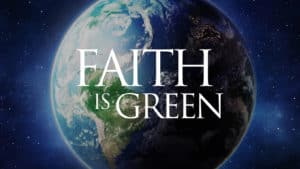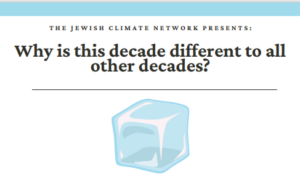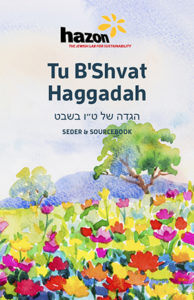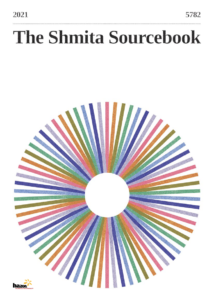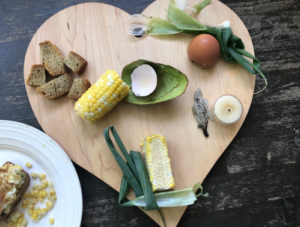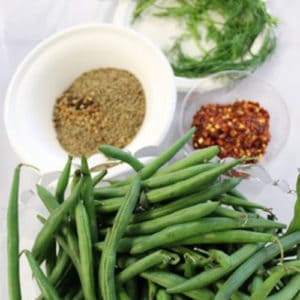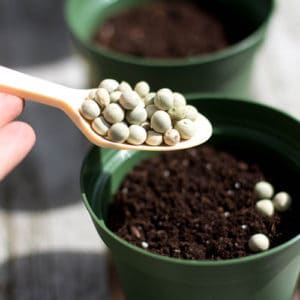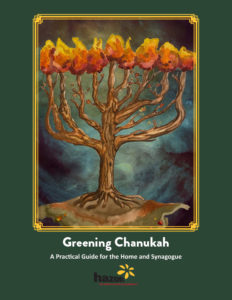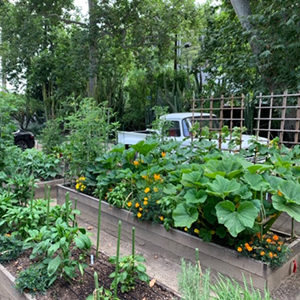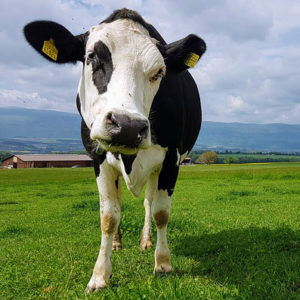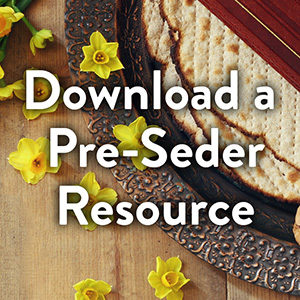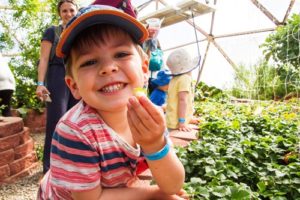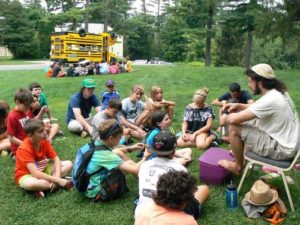Hazon Educational Library: Food
Faith is Green
by Hazon and EarthX
Hazon
Hazon partnered with EarthX to produce episodes on Jewish environmentalism for the Faith is Green series on EarthxTV. This brand new original series details how we can all strive to create a more environmentally sustainable world through observance of Jewish values such as respect, fairness, responsibility, and community.
Episodes were available for free on EarthxTV for a year. The shows are currently unavailable due to international media agreements. Please check back in the future; we will reactivate the links as soon as the shows are available again.
Ice Block on the Seder Table
Hazon
From the Jewish Climate Network:
We are asking our community to place an ice block beside the Seder plate and open up a conversation about climate change this year, while linking it to the fundamental themes of Pesach.
The ice block represents the rapidly melting ice caps and sheets throughout the world caused by human
activity. As the ice block shvitzes on our Seder table, we are reminded that time isrunning out for action. It
becomes a physical prompt to ask questions, much like the other Seder table objects prompt questions.
To support these questions the JCN has created a printable Ice Block Challenge guide that can be
incorporated into Seder night.
Tu B’Shvat Haggadah
Hazon
The Hazon Tu B’Shvat Haggadah offer thoughts and ideas to help you celebrate Tu B’Shvat in your home or community. The texts, questions, activities, and suggestions can serve as guides for viewing Tu B’Shvat through fresh eyes and recontextualizing traditions.
Updated Shmita Sourcebook
Hazon
The Hazon Shmita Sourcebook presents a guided exploration of the history, concepts, and practices of Shmita, from debt forgiveness to agricultural rest, economic adjustment to charitable giving. The updated sourcebook explores texts and commentaries that build the framework of Shmita within the biblical and rabbinic tradition, as well as contemporary voices that speak to Shmita as it relates to our modern world.
Blessing Our Food Waste
Hazon
Through the practice of a food waste ritual, we can find deep lessons in how we gather, cook, and scrap food. We visually express those lessons into a “visual blessing” using actual food scraps and stones or other found natural objects. Then, we craft and recite a spoken blessing. Together, this helps us rethink food waste in our homes and communities.
Decomposition
Teva
What can return to the earth quickly and what will stick around for hundreds of years? This game will challenge participants to think critically about the trash they produce, what happens when they throw things ?away? and how the earth plays a role in this process.
Category: Food waste, Sustainability
Tags: Teva
Age(s): Elementary, Teens
Pickling 101
Teva
There are many options to preserve each season's harvest, including canning, vinegar pickling, drying, blanching and freezing. This particular activity teaches lacto-fermentation pickling - an easy, fun and extremely health-friendly method of food preservation. Participants will take home a jar of their own and in a few days will be able to eat their own pickles!
Category: Food & Climate, Sustainability
Microgreens
Teva
Microgreens are mini versions of regular vegetables. The shoots are harvested at a young age, before they grow into fully matured plants. They have a wonderful flavor and are richer in nutrition than their larger counterparts. Best of all, microgreens are fun and easy to grow!
Category: Food & Climate, Sustainability
Greening Chanukah Guide
Teva
The Greening Chanukah Guide offers an overview of Chanukah through the lens of sustainability. Find tips and tricks for greening your holiday and learn more about the environmental implications of oil production to help create a healthier and more sustainable world for all!
Judaism and Food Waste Source Sheet
by Lior Gross and Hazon
Teva
This source sheet is a dive into Jewish tradition's commentary on prohibitions against wanton waste, environmental stewardship, responsibility for community members in need, and responses to hunger and surplus. We hope that it serves to mobilize Jewish communities to act on climate change and food injustice by reducing food waste, keeping it out of landfills, and transforming it to reduce food insecurity.
Industrial Animal Agriculture and Climate Change – A Story Source Sheet
Hazon
The connection between industrial animal agriculture and climate change is significant. But why and how is that so? This two-page source sheet presents a string of data that tells a concise and compelling story of the connection between industrial animal agriculture and climate change. Based on the writings of Jonathan Safran Foer in his book We Are the Weather: Saving the Planet Begins at Breakfast.
Setting a Conscious Table – four questions to help you prepare a Passover Seder
JIFA and Hazon
As you prepare for the Passover seder this year, consider using these four questions to help inform your own conscious food choices, and to enhance your discussions with family and friends during the holiday.
Tasting the Torah, Torah as a Food Memoir of the Jewish People
by Sarah Rockford
Colby College
There are anecdotal stories about food throughout the Torah. These food-cameos are, perhaps, even more instructive in the origins of Jewish food culture than the direct instructions about what may be eaten.
Age(s): Adults, High School
A Hanukkah Dilemma: Dairy Making, Judith and the Dairy Industry
by Liana Rothman
Isabella Freedman
Three-fold workshop, which involves delving into the history of dairy on Hanukkah, making cheese and butter, and a discussion about the dairy industry and striving towards greater ethical consumption under capitalism, under the lens of our environmental crisis.
Age(s): Adults
Exploring the Water Cycle and Hebrew Holidays
by Jessica Wolfe
Isabella Freedman
Students will learn how the Jewish holidays relate to the water cycle. We will look at the water cycle of North East United States & Israel to compare and contrast the differences between the water cycles in each region and the holidays that occur during those times.
Age(s): Middle School

